FOR PARENTS AND FAMILIES
Resources for family members whose loved one has joined The Network

FOR PARENTS AND FAMILIES
JUMP TO SECTION:
- Causes of Concern ⇣
- Ways to Take Action ⇣
- Related Personal Stories ⇣
- Advocacy ⇣
- Additional Resources ⇣
- Messages from Loved Ones ⇣
CAUSES FOR CONCERN
We have heard from many parents, siblings, and friends of young people involved with The Network who are worried about their loved ones. Those who have reached out to us have described how increased involvement in a Network church has coincided with rapid changes in their loved ones' lives, such as:
- Drastic personality changes
- Sudden loss of interest in long-time hobbies and activities
- A sharp increase in attendance and involvement in Network programming
- Committing significant financial assets to The Network
- Abrupt priority shifts to stay at a Network church rather than continuing after college into a chosen career
- Prioritizing Network gatherings, conferences, retreats, and trainings over family celebrations and holidays
- Increased control from Network pastors and other leaders over large and small decisions in their personal lives
- In some cases, young men have been flown to Austin, Texas to meet with Steve Morgan at his estate
Parents, siblings, and friends describe feeling helpless as they watch their loved ones get drawn deeper and deeper into the group.
WAYS TO TAKE ACTION
It's important to stay calm and develop a plan. The culture of this group creates insular feelings which are resistant to criticism from the outside. Individuals within it are systematically isolated and are convinced that leaving would be unrecoverable.
Avoid being argumentative or judgmental about your loved one's involvement in The Network. Speaking out against leaders within The Network will likely be viewed as "spiritual attack." Trying to help someone leave The Network puts you up against a system that is doing everything it can to convince them that you are wrong.
Instead, focus on keeping lines of communication open with your loved one. Be a patient resource, and give them help in approaching the subject objectively if they ask. It is important to respect their autonomy in making their own decisions.
For more ideas, read the wikiHow article on suggestions for how to help deprogram a friend who is involved with a high-control group (this wikiHow article was co-authored by a clinical psychologist).
Note: The wikiHow article uses the word "cult." Some prefer to use terms like "high-control group," "toxic or unhealthy church," or "religious sect." Linking to this article does not imply that all who worked on this site believe The Network is a cult. We cover this on the Network Churches page under "Are These Churches Cults?"
RELATED PERSONAL STORIES:
- A Parent's Heartbreak: Our son severed all ties with us under the influence of Network pastors
- Double Standards for Grace: I was excommunicated after my divorce while my ex-husband was forgiven and embraced
- A Parent's Perspective: What I learned when my daughter joined a Network church plant during her university years
ADVOCACY:
FACC (Families Against Cults on Campus) is an advocacy group whose members have all been negatively impacted by Network churches. They have been featured in national news articles and their videos have received tens of thousands of views. Their goals are to educate college students and communities about the dangers of coercive control and prepare students to spot red flags from Network recruiters, who are highly active on university campuses. The leadership structure of Network churches and The Network's emphasis on “obeying your leaders in all things” are areas of concern for the several dozen families who have joined FACC.
ADDITIONAL RESOURCES
These resources have helped family members find constructive ways to address their loved ones' involvement in The Network:
- Is the Church I’m Going To “A Cult”? - by Paul Carter on Gospel Coalition
- Freedom of Mind: Helping Loved Ones Leave Controlling People, Cults, and Beliefs - book by Steven Hassan
- Why do people join cults? - video by TedEd
- How to help friends and family - article by CultWatch
MESSAGES OF CONCERN FROM LOVED ONES
The following screenshots from parents and other loved ones on the Leaving The Network subreddit forum reveal grief, anger, and heartbreak over separation caused by family members' involvement in this group. We have preserved these posts to show others similar situations that they aren't alone.
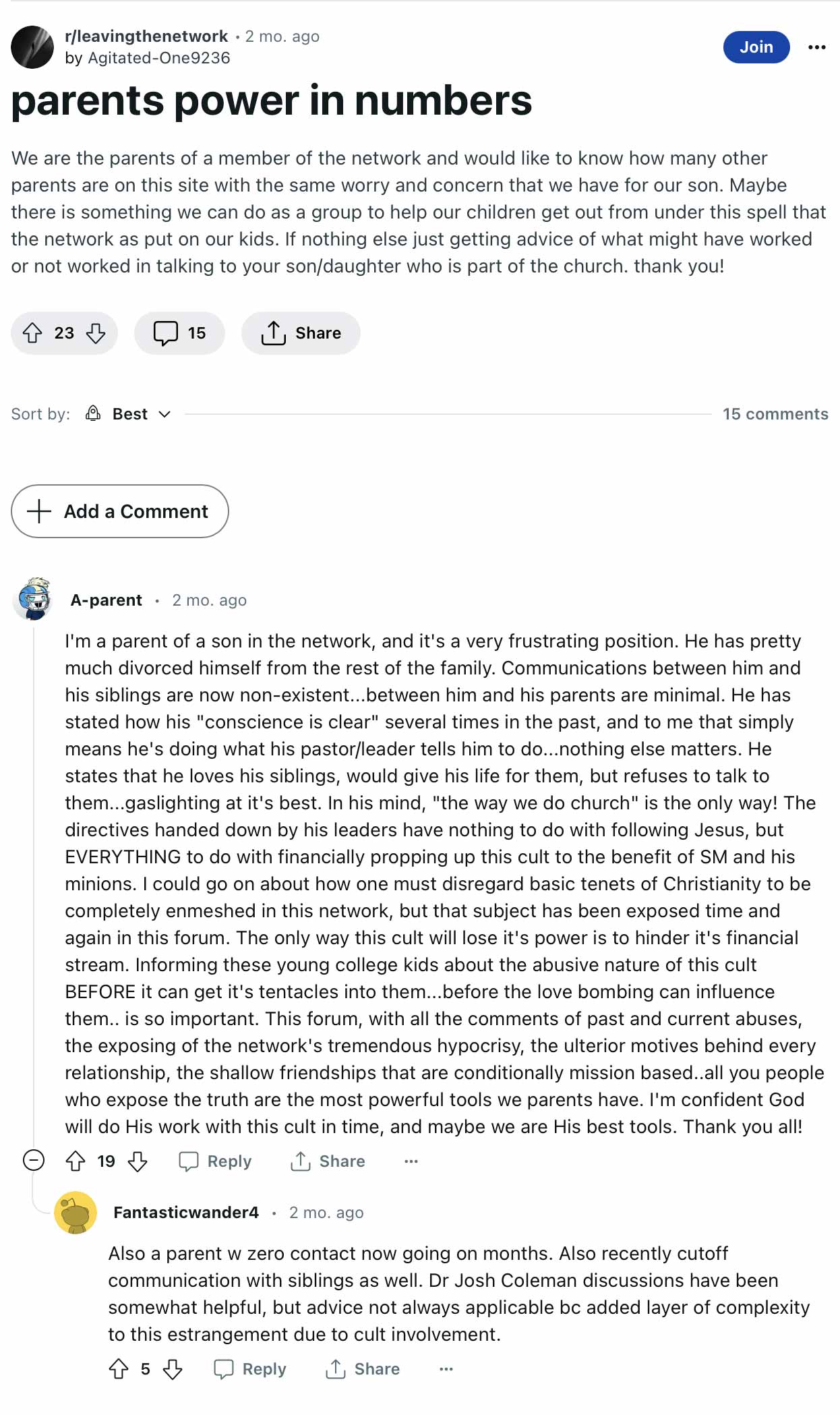
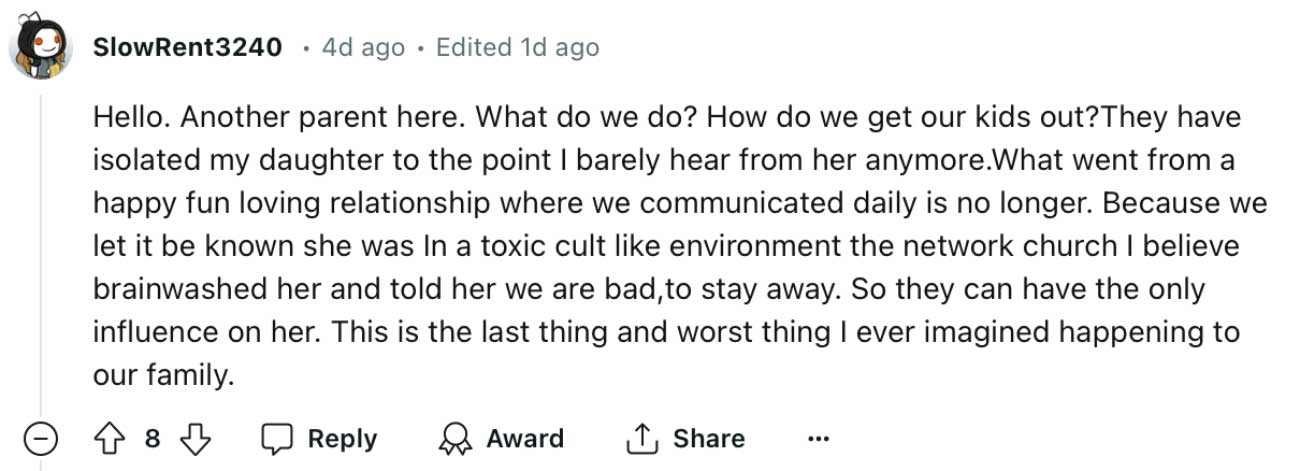

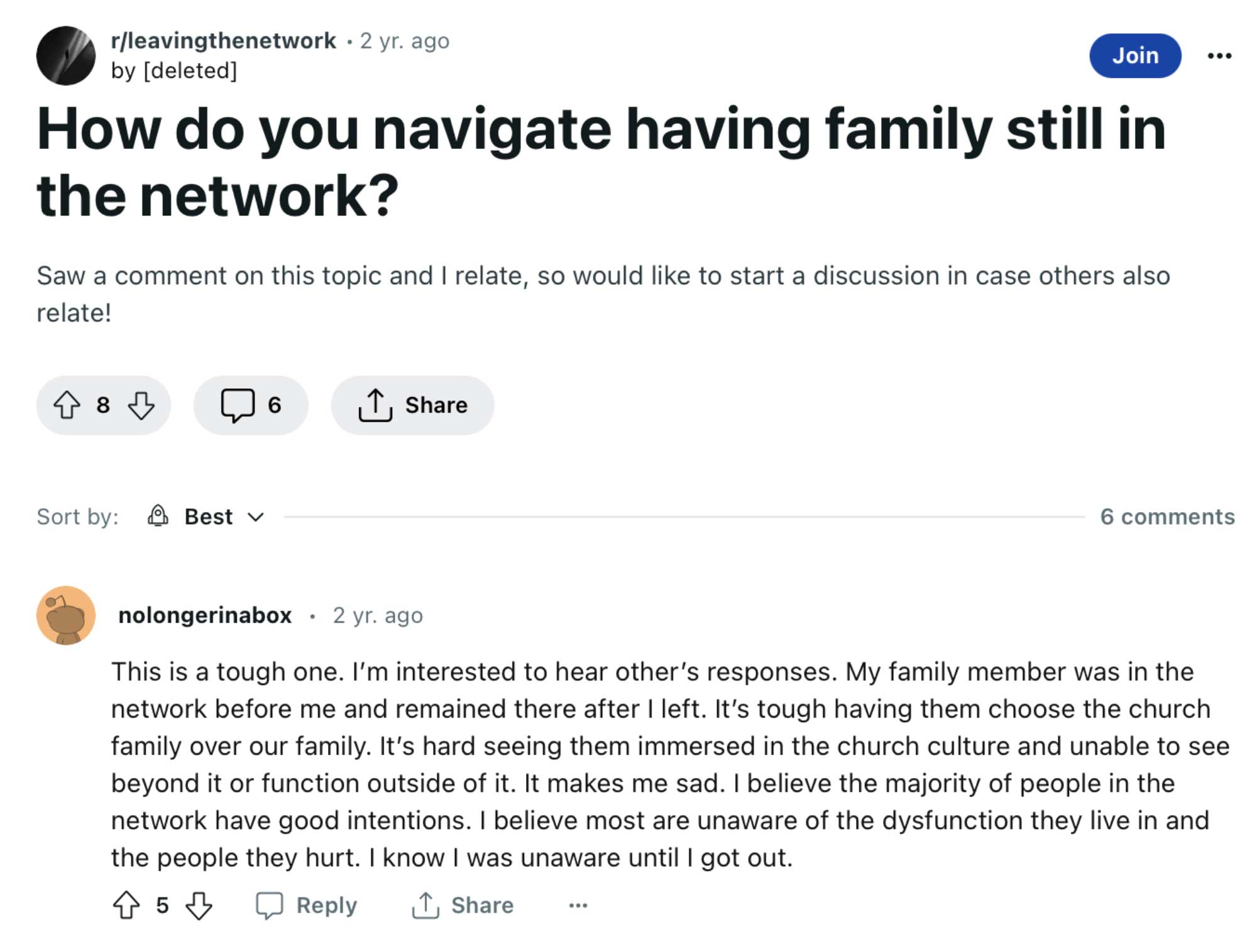
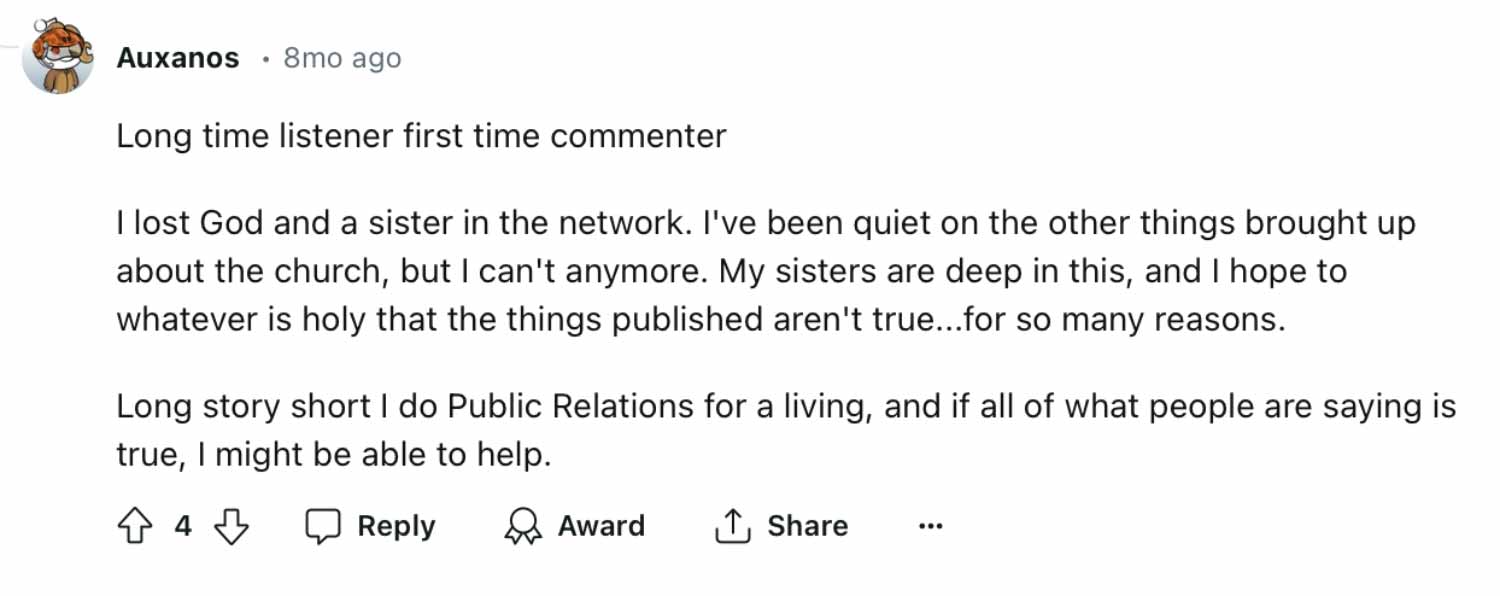
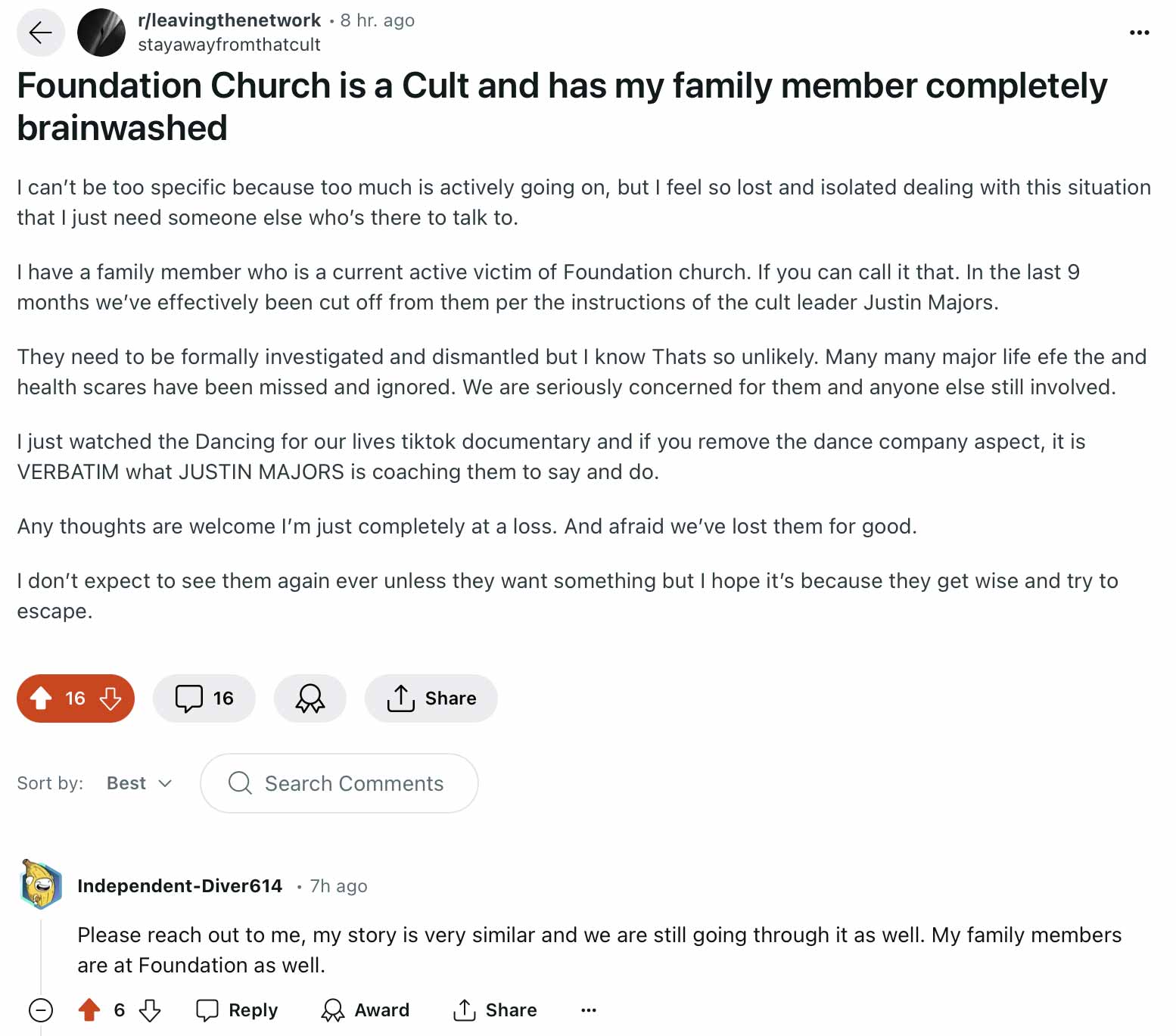

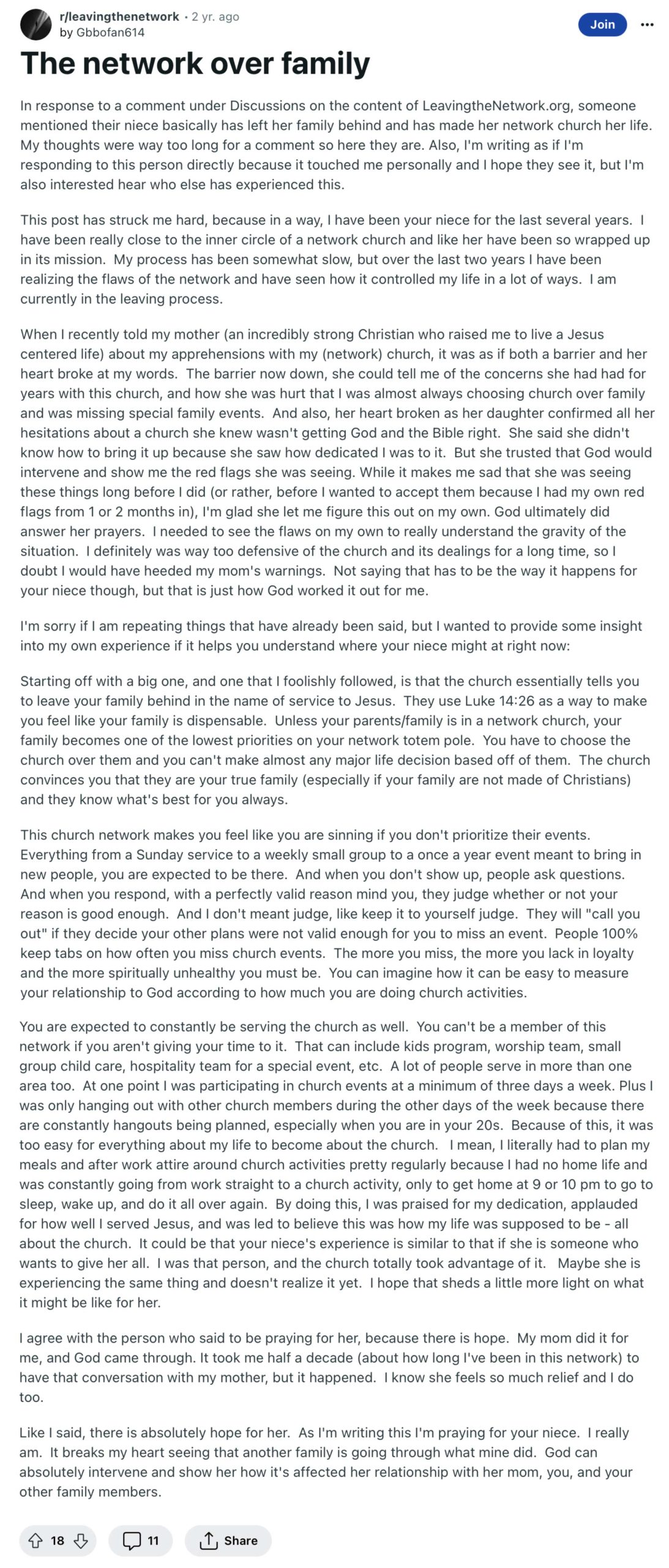
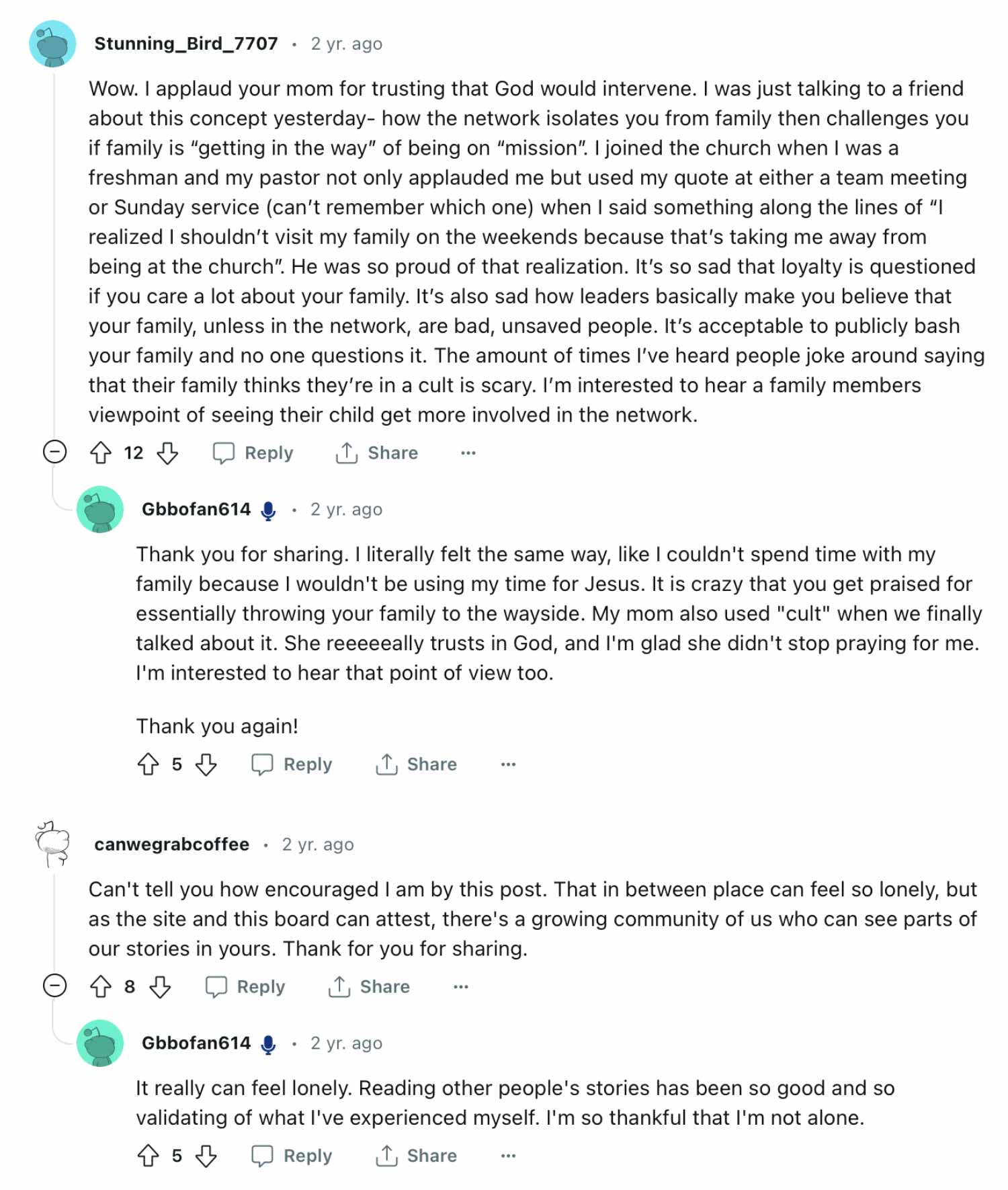
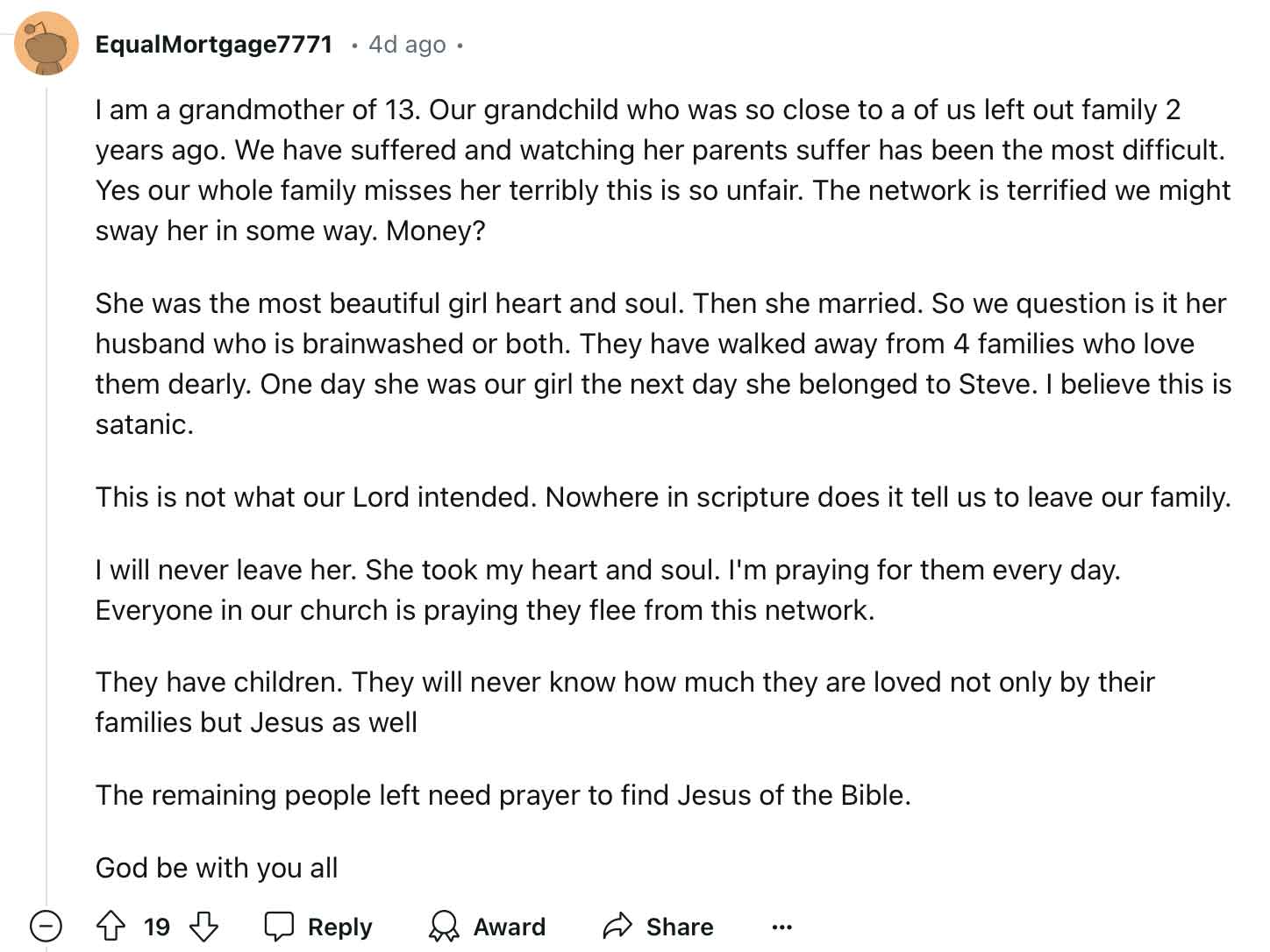
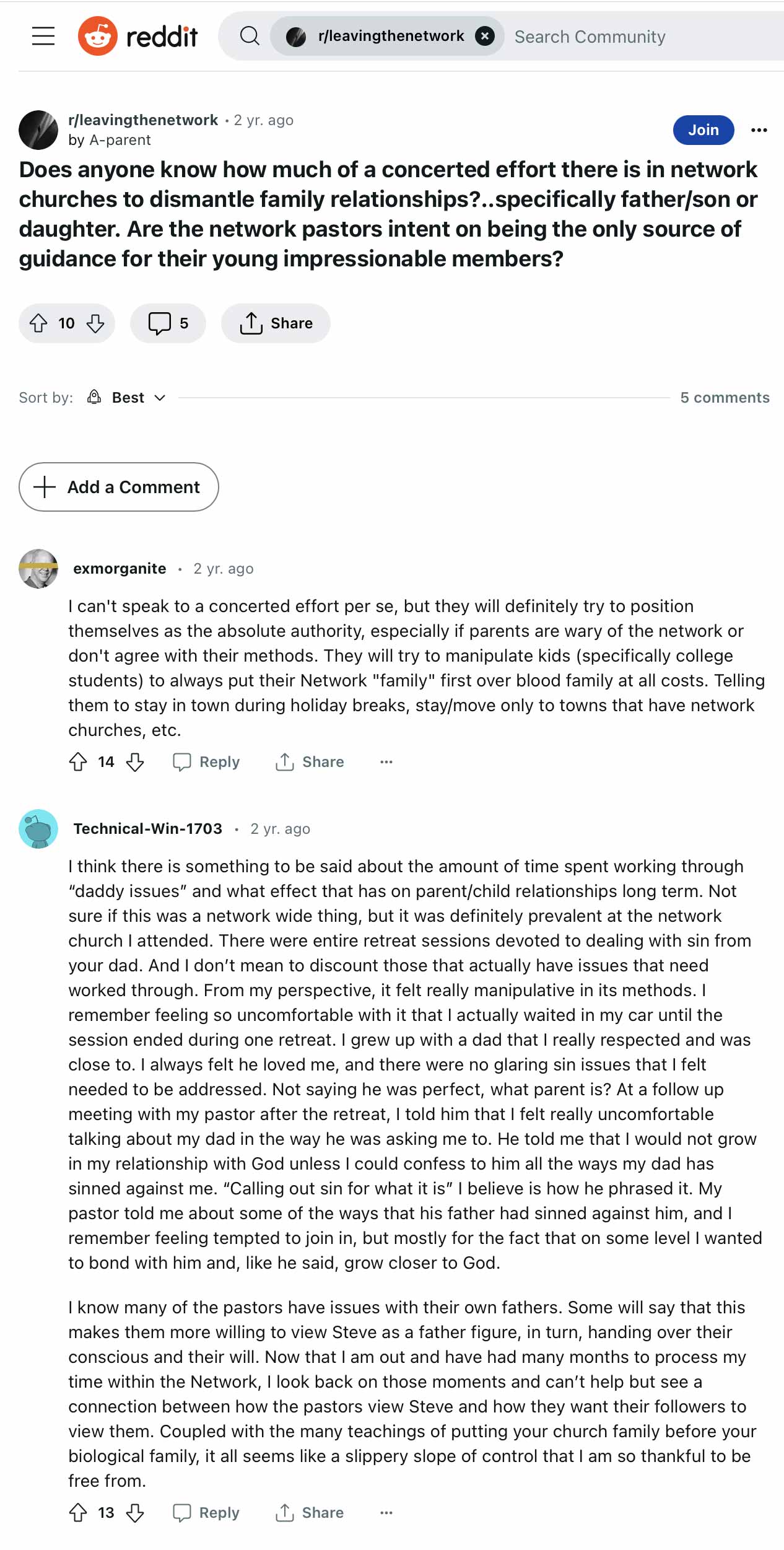
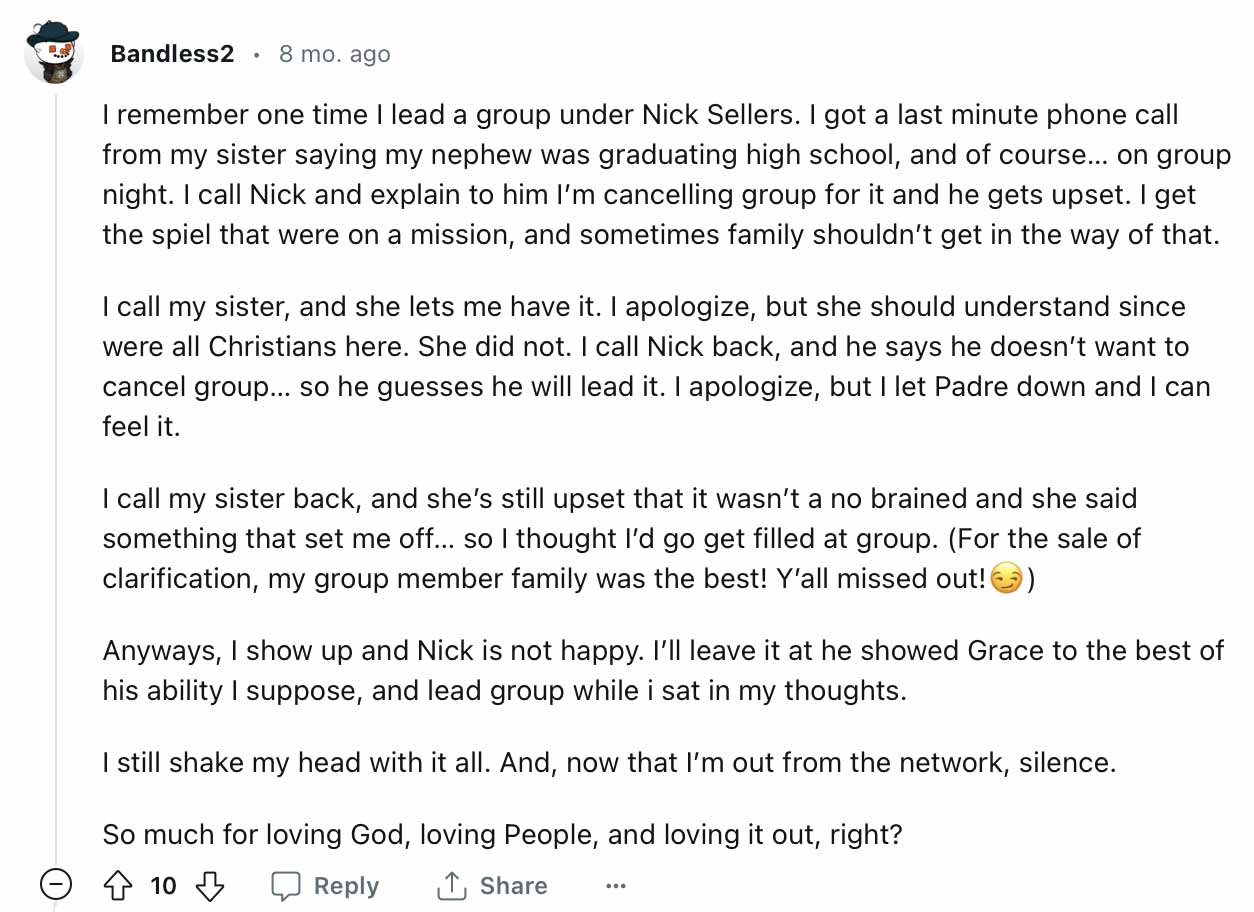
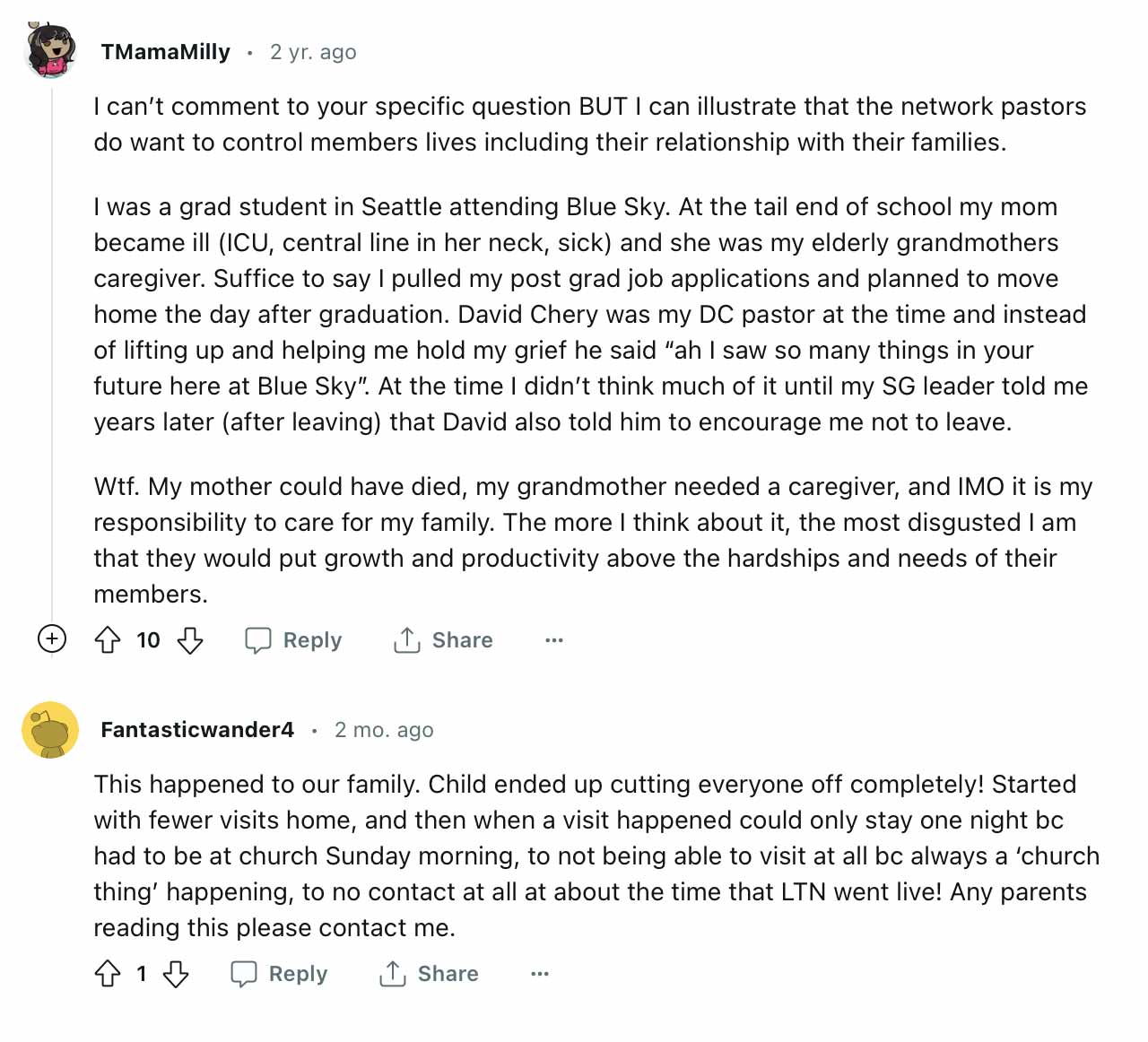
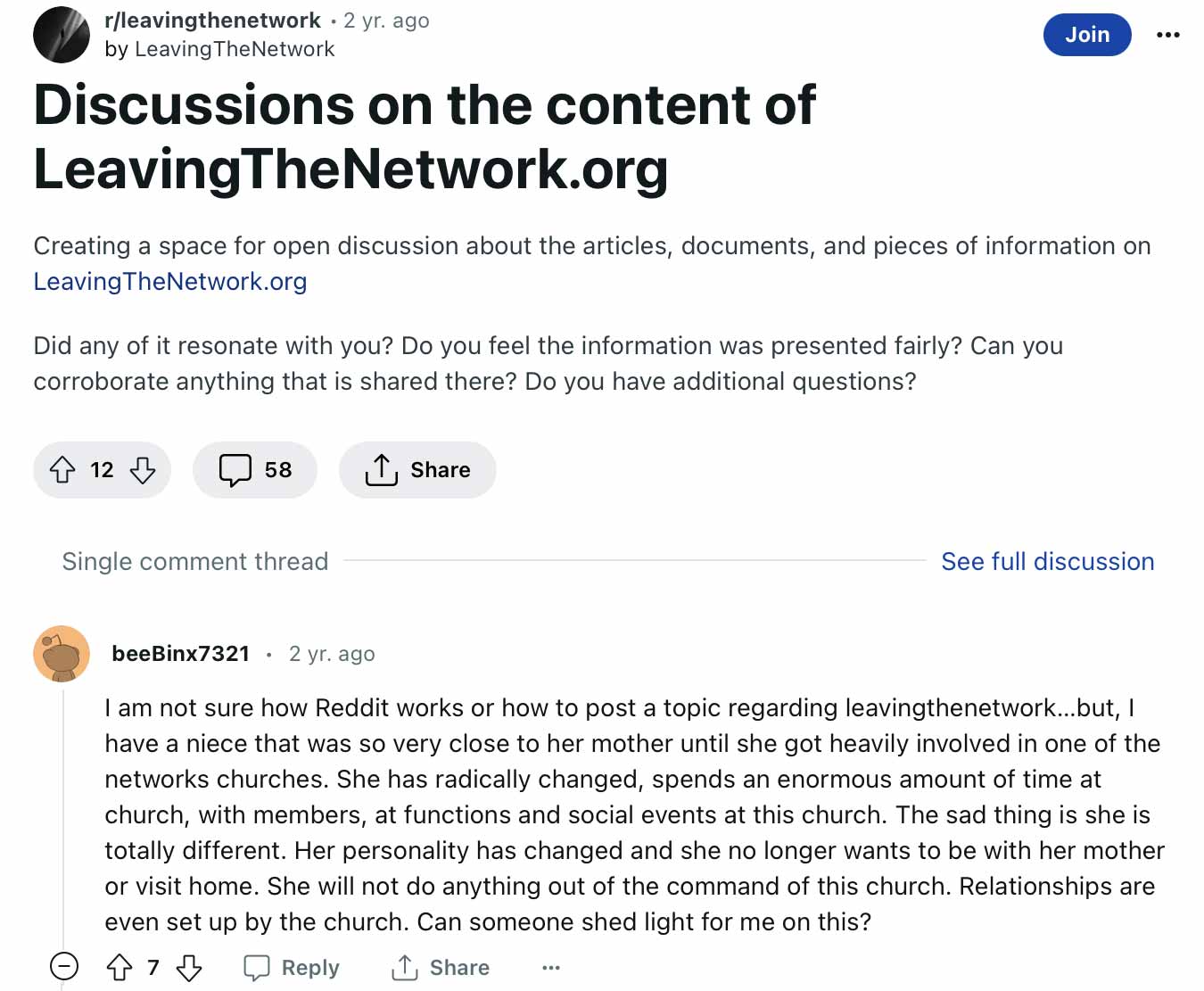
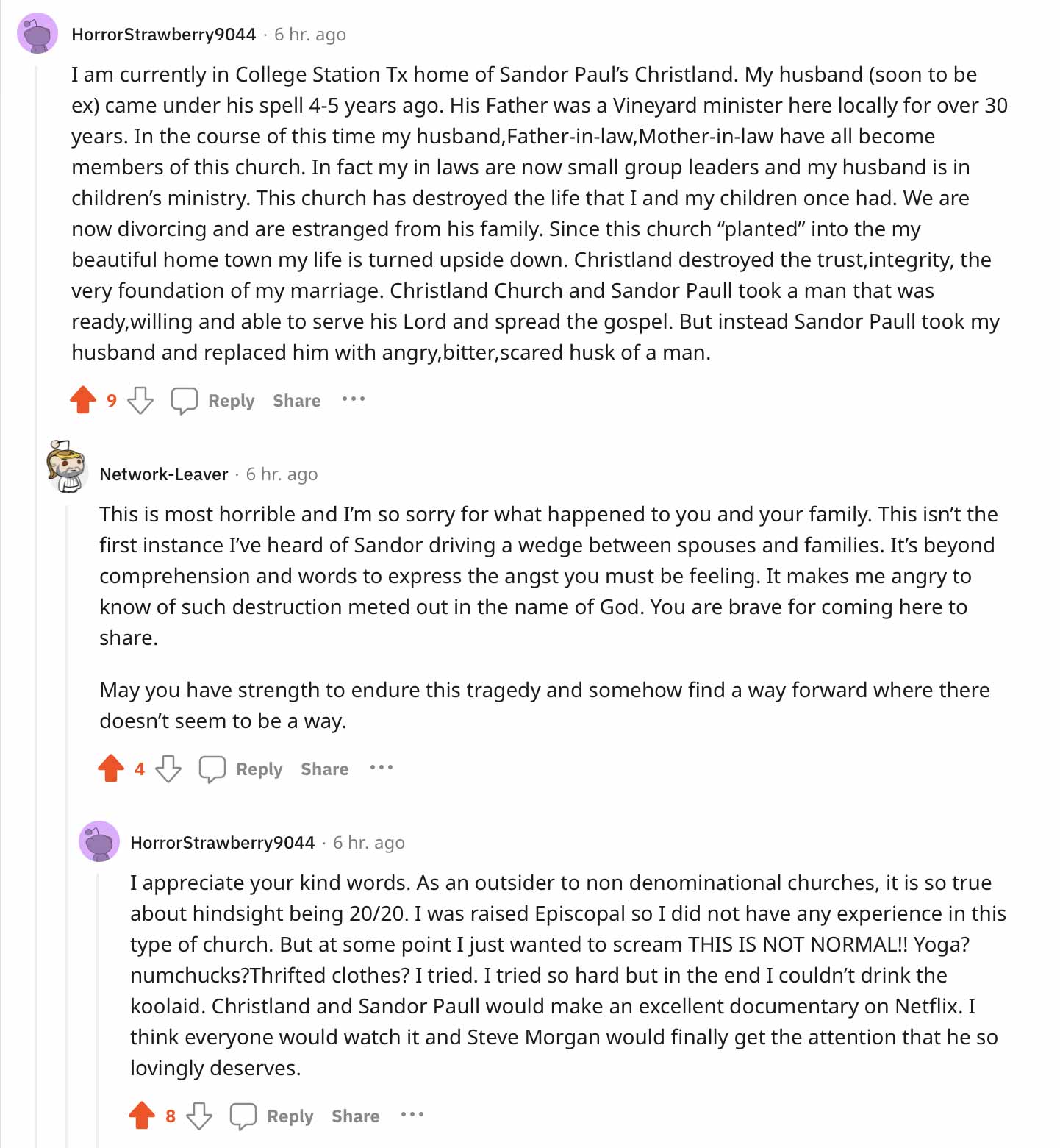

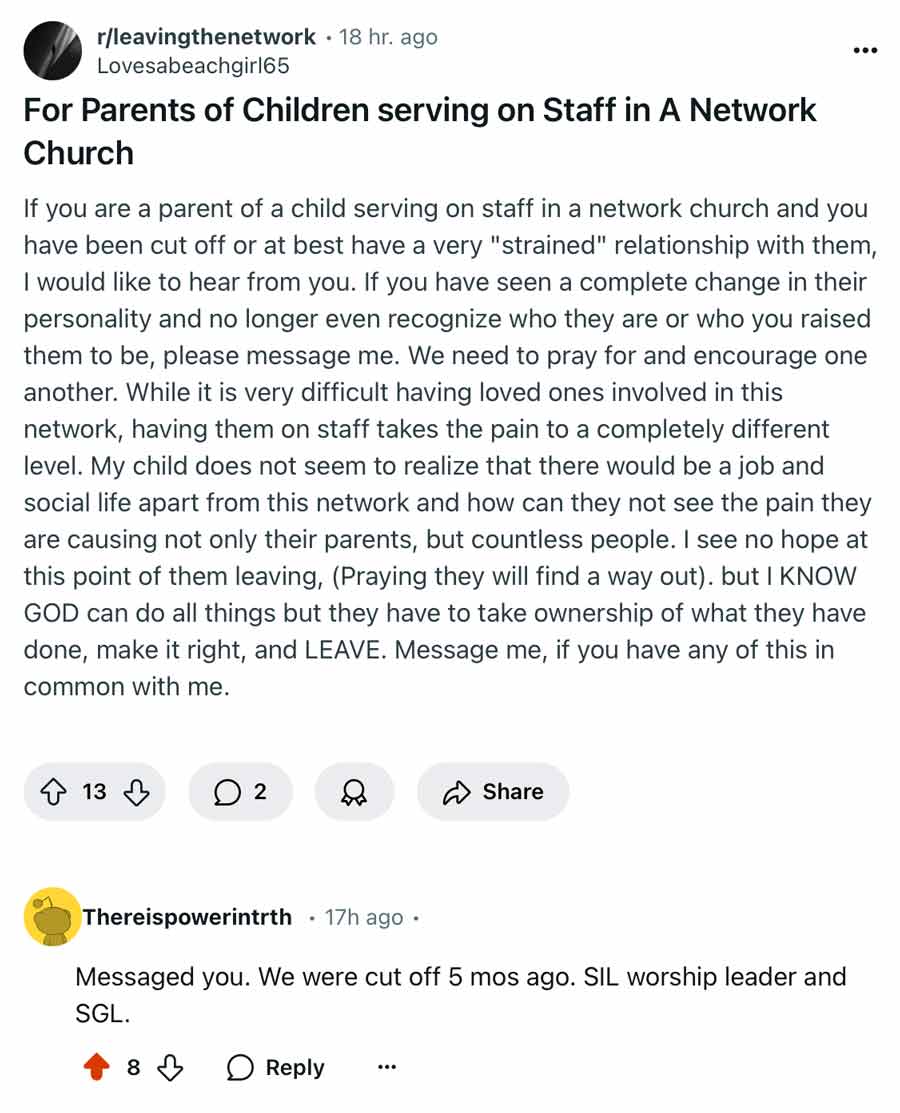
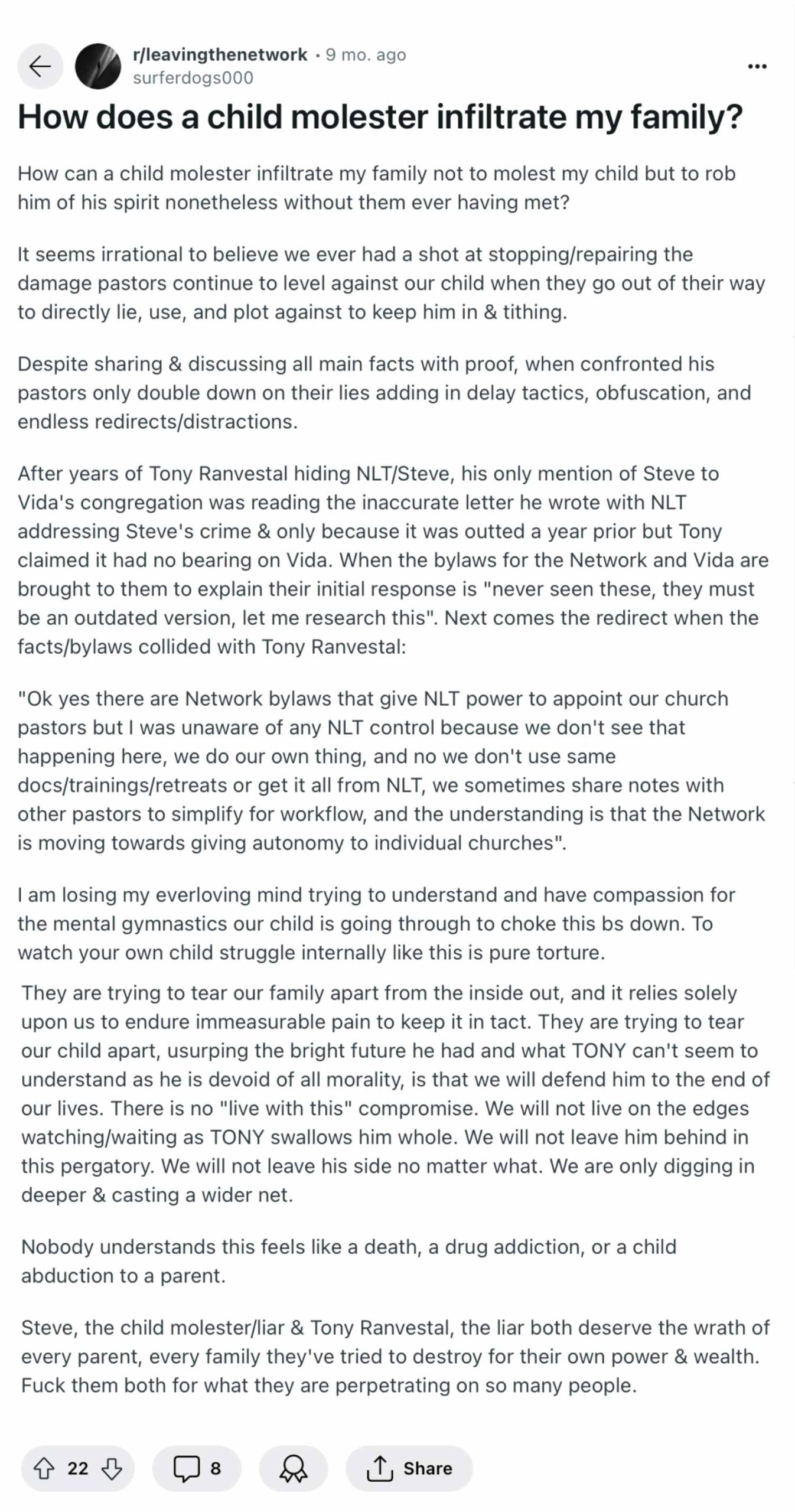
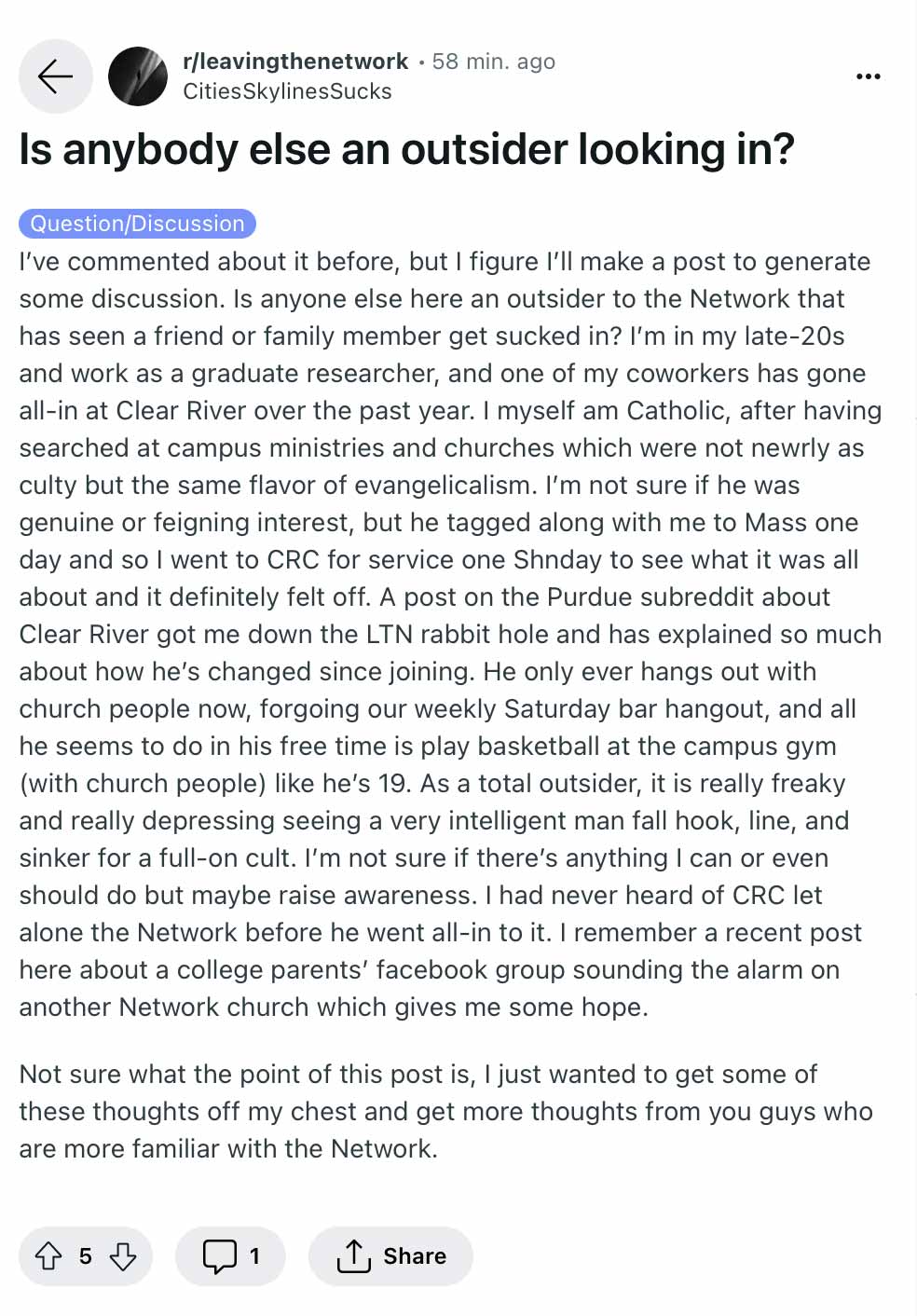
FURTHER READING:
8 SIGNS OF A DYSFUNCTIONAL CHURCH: Characteristics of spiritual abuse within dysfunctional churches and high-control groups
HELP OTHERS HEAL
Consider donating to the National Association for Christian Recovery (NACR), a 501.c.3 non-profit whose primary purpose is to help provide resources to recover from abuse (including spiritual abuse) and addiction. Leaving The Network admires the work of NACR but is not associated with their organization.